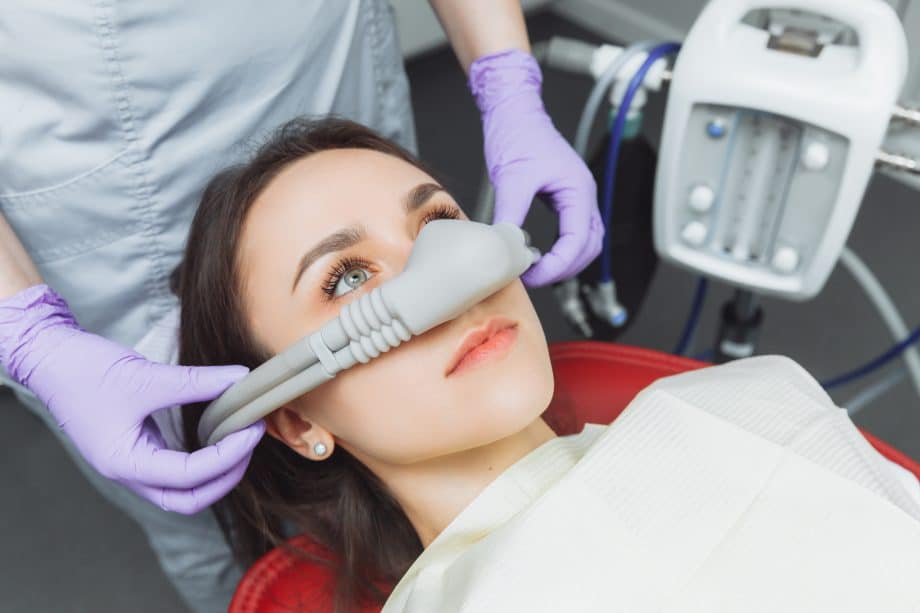Are you afraid of the dentist? A study in 2014 showed that about 36% of us are afraid of the dentist, and 12% are so afraid that they put off dental care. This really isn’t surprising…nobody is ever going to be completely comfortable with sharp and sharp-looking objects in and around their mouth. High dental anxiety is associated with low quality of life.
Sedation dentistry is one answer to dental anxiety.
What is Sedation Dentistry?
Sedation dentistry is the use of some kind of medication to help you stay calm, relaxed, or fall asleep. This allows you to go through the dental procedure with less fear and anxiety. Over time this can reduce your anxiety and help you maintain good oral health.
Who Needs Sedation Dentistry?
Sedation dentistry is recommended for people who experience significant anxiety about going to the dentist. Typically, we recommend it if you have:
- Significant anxiety or fear of going to the dentist
- An overly sensitive gag reflex, which can make routine dental procedures much more uncomfortable
- Fear of needles
- Extreme teeth sensitivity
- Claustrophobia, which in some people is triggered by being “trapped” in the dental chair
- Decreased sensitivity to local anesthesia, which can result in the need for higher doses.
- Difficulty controlling your movements while in the chair
- Cognitive or behavioral disabilities
Some people may need sedation only for some procedures. For example, if you have an extreme fear of needles specifically, you may be fine for exams and cleaning, but need sedation for fillings.
What Types of Sedation Are Used in Sedation Dentistry?
There are two main types of sedation available:
- Oral sedation. This typically means triazolam, which is in the valium family and will help you relax. If you do not tolerate valium well, they may use a different medication. Oral sedation will make you groggy and sleepy, but still allow you to communicate with your dentist. You should not drive home after receiving oral sedation, as it will affect your memory and motor skills.
- Inhaled sedation. This usually means nitric oxide, the classic “laughing gas.” This is fast acting and leaves your system quickly. You will get oxygen afterwards to flush it out. You can drive home after your procedure. You also stay alert and responsive, which makes for less anxiety if you like to stay in control of the situation.
Which one is best for you depends on your situation, preferences, and tolerances for different medication. For example, if you have nobody to drive you home, then laughing gas is a better option. However, some people prefer to take an oral sedative slightly ahead of time so they are not as nervous in the waiting room.
What Are the Benefits of Sedation Dentistry?
The biggest benefit of sedation dentistry is that it keeps you from neglecting your oral health. There are, however, some other benefits.
- It can reduce your anxiety in the long term. Some people find that after using sedation for a few visits they may no longer need it. The sedative reduces negative associations and can make it hard to remember procedures, so fear does not build up. It also reduces pre-procedure anxiety, which can affect your productivity, sometimes for several days before an appointment.
- Reduced gag reflex. Some people’s gag reflex is set off when the dentist starts to scrape the back teeth, resulting in spasms and potential damage. For such people, sedation can suppress the gag reflex and make procedures safer.
- Less time spent in the chair. The dentist won’t have to deal with you squirming, asking them to stop repeatedly, etc. For longer procedures this can significantly reduce the length of time your appointment takes. It may also allow you to have fewer appointments.
The primary benefit is keeping you relaxed so that you are able to handle the dentist with less anxiety both during and before the procedure. If you are nervous about going to the dentist, contact Ballas Dental to discuss how sedation dentistry can help you and to schedule an appointment.

